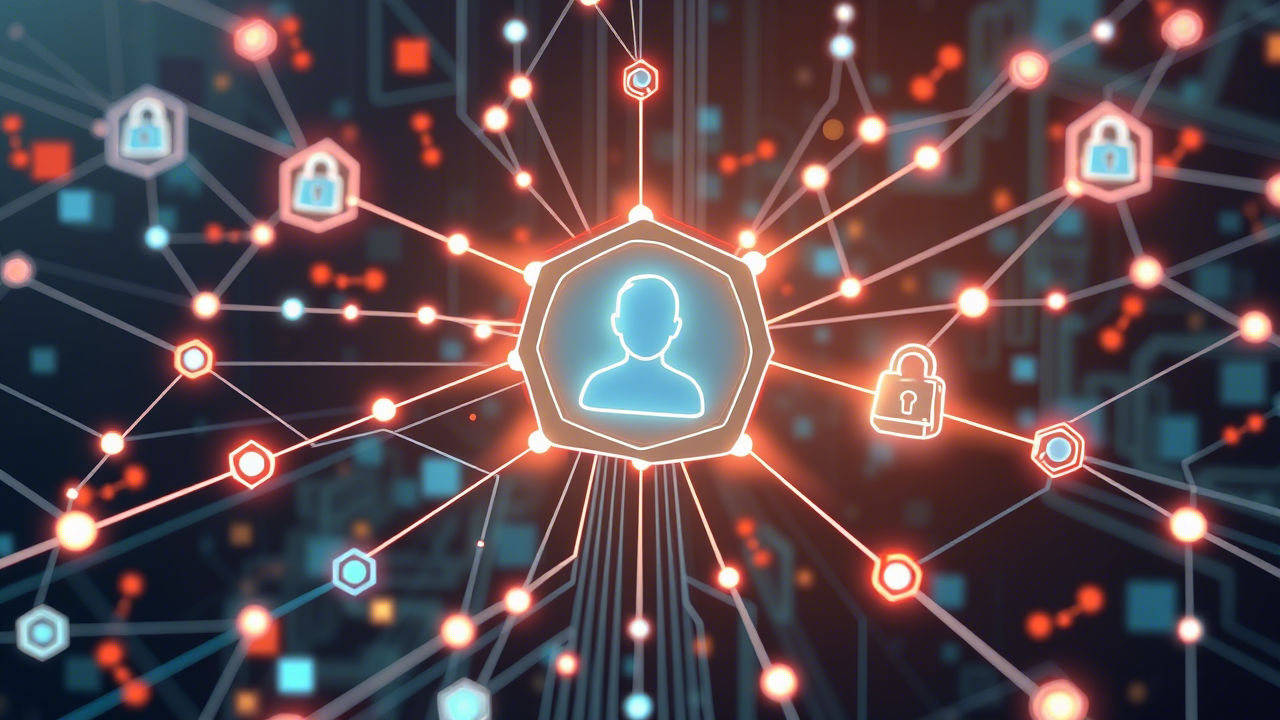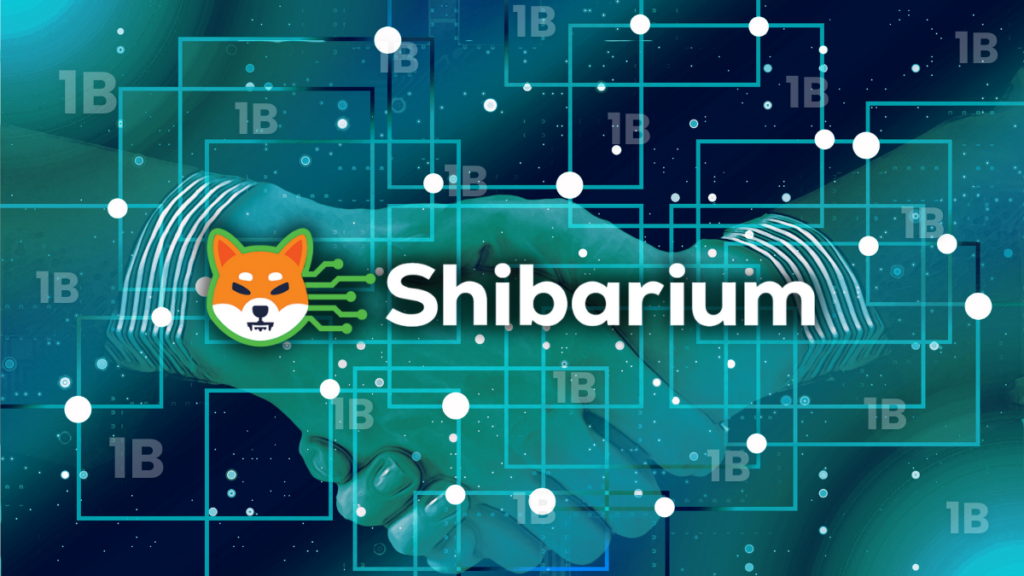In today’s world, managing your identity is more important than ever. It’s not just about who you are in the real world, but how you’re recognized online. That’s where identity management comes in. Think of it as the ultimate VIP bouncer at the club of the internet, making sure that only the right people (and websites) know who you are and that your personal info stays safe.
Now, here’s the twist: Enter blockchain—the tech that’s about to make your digital identity even more secure and easier to manage. Imagine if your personal information didn’t live in a big, vulnerable database somewhere. Instead, it’s locked up in a decentralized system that you control. This is the power of blockchain in identity management: security, privacy, and control, all in one.
With more data breaches and privacy concerns popping up every other day, the need for secure digital identities has never been greater. Hackers love to target centralized systems, but blockchain’s decentralized structure makes it much hаrder for anyone to mess with your data. So, in a nutshell: Your identity deserves a bodyguard, and blockchain is here to make sure no one messes with it!
What is Blockchain Technology? The Cool, High-Tech Ledger You Didn’t Know You Needed
Alright, so imagine a huge notebook that everyone can see but no one can erase. That’s blockchain! It’s like a digital ledger, a list of transactions or data entries, but instead of living on a single computer or server, it’s spread across lots of different computers all over the world. That’s what makes it decentralized. No one person or company is in charge of it, and that’s a big deal for keeping things secure.
Now, what makes blockchain even cooler? It’s got a few key features that make it a total game-changer for identity management:
- Decentralization – No more putting all your eggs in one basket. Since blockchain is spread across a bunch of computers, there’s no single point of failure. If one computer goes down, the others keep things running smoothly.
- Immutability – This is the tech version of “you can’t erase your past.” Once something is added to the blockchain, it’s pretty much permanent. No one can go back and change it, making it a perfect tool for tracking identities and preventing fraud.
- Transparency – Everyone can see the record, but only the right people can update it. So, while you’re in control of your personal info, the blockchain lets anyone check the data without changing it—kind of like showing your ID without letting anyone take a picture.
- Security – Blockchain uses fancy cryptography (fancy word for “locking up info”) to make sure everything is safe from hackers. Each piece of data is encrypted, making it tough for anyone to mess with your identity.
So, how does blockchain solve the problems of traditional identity management? Well, in regular systems, your personal info is often stored in one central place, and if that place gets hacked, it’s game over. But blockchain keeps everything distributed and secure, so hackers can’t just waltz into one place and steal everything. Plus, with all that transparency and security, your identity stays yours—and no one else can mess with it!
Traditional Identity Management: The Old-School Way That Needs a Makeover
Now, let’s take a look at the old-school waу of handling identity management. You know how when you sign up for a new app or website, they ask for your personal details and create an account for you? Well, these systems are typically centralized, meaning they store your information in one place—usually with a government database, a big tech company, or even your favorite social media platform.
But here’s the thing: storing everything in one place isn’t as secure as you might think. If that database gets hacked (and, sadly, they do get hacked), your personal information is at risk. It’s like putting all your cash in one wallet and hoping no one steals it.
Let’s break down the drаwbacks of traditional identity mаnagement:
- Security Risks: Since all your info is in one place, if hackers break into the system, they can get access to everything. Think of it like having a single lock on your front door—if someone picks that lock, they’re in.
- Data Breaches: We’ve all heard about companies leaking personal information (yikes!). When data breaches happen, it’s usually because bad actors gained access to a big, centralized database. Suddenly, your name, address, and other sensitive details are floating around on the internet.
- Reliance on Third Parties: When you rely on these big companies to store your data, you’re trusting them to keep it safe. But if something goes wrong (like their server crashes or they get hacked), it’s your info that’s at risk, not theirs.
- Privacy Concerns: With traditional systems, you don’t have full control over your personal data. Companies might track your movements, sell your data to third parties, or use it for targeted ads. It’s like someone watching over your shoulder while you shop.
In short, while traditional identity management systems have worked for years, they have some pretty big flaws. And as we move into a more digital world, it’s time for a change! That’s where blockchain steps in to save the day.
How Blockchain Revolutionizes Identity Management: The Game-Changer
Alright, let’s dive into how blockchain is shaking things up аnd making identity management a whole lot cooler!
First up, we’ve got something called self-sovereign identity. Sounds fancy, right? But all it really means is that you get to be the boss of your own data. Unlike traditional systems where companies store your info and can change it whenever they want, blockchain lets you have full control. Your personal details stay in your hands, not theirs—finally, you get to decide who sees what and when!
Now, let’s talk about the decentralized nature of blockchain. What does that mean? Well, instead of having one central place where all your data is stored (which can be a huge target for hackers), blockchain spreads it across many different places. It’s like putting your information in a bunch of safe deposit boxes across town instead of one giant vault. This means less risk of a big hack affecting everyone at once!
When it comes to security, blockchain brings out the big guns. With encryption and cryptographic techniques, it makes sure your data is locked up tight. Imagine it’s like putting your personal information in a vault with not just one, but several different locks. So even if someone tries to get in, they’ll have a tough time cracking it.
Related: Kusama Reveals Details Of New AI Product in Recent Livestream
And the best part? Transparency. With blockchain, users and organizations can easily verify identities in real-time. No more waiting for days for a verification email or worrying about whether something’s legit. Everything’s visible and easy to check, which makes the whole process smoother and more trustworthy.
In a nutshell, blockchain takes identity management to a whole new level. It puts you in charge, enhances security, and makes everything more transparent. No more relying on a third party—blockchain gives you the keys to your own digital world.
Key Benefits of Blockchain in Identity Management: Why It’s a Game-Changer
Let’s break down the key benefits of using blockchain for identity management. Trust me, this is where the magic happens!
First up, security and privаcy. Blockchain is like a digital fortress. Thanks to its strong encryption, your personal data is protected from hackers and leaks. It’s like locking your identity in a vault, and only you have the key to open it!
Next, control and ownership are all yours. Forget giving up your data to big corporations or worrying about who has access. With blockchain, you decide who gets to see your info and when. It’s all in your hands, making you the boss of your own digital life.
When it comes to transparency and trust, blockchain shines bright. The records are immutable, meaning once something’s on the blockchain, it can’t be changed. This makes verification processes trustworthy, as everyone can see the same, unaltered information in real time. No more wondering if something’s legit—everything’s right there!
Finally, blockchain is all about efficiency. Traditional systems can be slow and costly, but blockchain speeds up verification and reduces the cost. No more waiting days for approvals or paying hefty fees for each check. It’s a win-win for everyone involved!
In short, blockchain makes identity management more secure, private, and efficient, all whilе giving you full control. It’s not just a trend—it’s the future of how we protect and verify our digital selves!
Real-World Applications of Blockchain in Identity Management
So, you’re probably wondering: “How does this work in the real world?” Well, let’s take a fun, quick tour of where blockchain is already shaking up identity management in some pretty exciting ways!
Government Use
Imagine using your digital ID or e-passport for travel without the hassle of paper forms. Blockchain helps streаmline things like voting systems and digital IDs, making them more secure and efficient. No more worrying about identity theft when you’re on your travels or voting from home!
Financial Sector
Ever tried to open a bank account or get a loan? The whole process involves a lot of back-and-forth for verification—until blockchain stepped in! Financial institutions are using blockchain for Know Your Customer (KYC) compliance and fraud prevention. This means faster, safer transactions where your identity is securely verified with just a few clicks.
Healthcare
Blockchain’s making a huge impact on health records. With patient consent, medical professionals can securely share your health info across systems, without compromising your privacy. No more outdated records or unnecessary paperwork when you see a new doctor.
Related: Shiba Inu Secures Victory on CoinGecko with New Page Update
Social Media
We’ve all sеen fake accounts and bots taking over social media platforms. Blockсhain can help solve this by verifying user identities without breaching privacy. So, no more worrying about who’s real and who’s not when you’re scrolling through your feed!
From government services to healthcare and social media, blockchain is changing the game in identity management, making it more secure, efficient, and user-friendly for all of us.
Challenges and Considerations
While blockchain sounds like a superhero for identity management, it does face some challenges. Let’s break them down:
- Adoption Barriers – Getting big institutions like banks, governments, and corporations to switch from their old-school systems to blockchain isn’t a walk in the park. A lot of these organizations are resistant to change, especially if it involves disrupting well-established ways of doing things. Plus, there’s no universal blueprint for blockchain-based identity systems, which means a lot of uncertainty about how to make it all work smoothly.
- Scalability Issues – Blockchain has tons of potential, but can it handle millions of people’s identity data all at once? Managing massive amounts of data is tricky. While blockchain’s decentralized nature is a big win, it can sometimes struggle with large-scale systems, especially when it comes to processing speed and storage.
- Regulation and Privacy Laws – With all the buzz about blockchain, there’s still a big question of how it fits into existing laws. Regulations like the GDPR (General Data Protection Regulation) are designed to protect privacy, and blockchain needs to align with these global standards to ensure that people’s rights are respected. Balancing security, privacy, and legal frameworks will be crucial as blockchain identity management continues to evolve.
Even with these hurdles, blockchain remains a strong contender in the race for a better, more secure way to handle identity.
The Future of Blockсhain in Identity Management
As blockchain technology continues to evolve, the future looks pretty exciting. Here’s a sneak peek at what could be coming our way:
Emerging Trends
Imagine combining blockchain with AI, biometrics, and the Internet of Things (IoT)—it’s like giving your identity superpowers! AI could help process and analyze data faster, biometrics like fingerprints or facial recognition could make verifying identities even easier, and IoT devices could interact seamlessly with your identity in real-time. This trifecta could create a whole new level of personalized, secure, and seamless identity management.
A Global, Interoperable Identity System
Right now, managing identities across different countries and systems can be a bit of a headache. Blockchain has the potential to create а global, interoperable identity system. Whether you’re in New York, Paris, or Tokyo, your identity could be verified quickly and securely, without needing to remember endless passwords or fill out forms every time you access a service.
Widespread Adoption
As more industries see the potential of blockchain for identity management, it’s likely that we’ll see broader adoption in the coming years. Governments, businesses, and individuals are beginning to realize the advantages of decentralized, secure identity systems, and this could lead to mass implementation. So, who knows? In the near future, we might all be using blockchain to manage our digital identities without even thinking about it.
The future of blockchain in identity management is bright, and it’s only gеtting started!
Conclusion
To wrap things up, securing your digital identity is more important than ever, and the traditional systems just aren’t cutting it. Blockchain offers a game-changing solution, giving you control over your identity, protecting your personal information, and eliminating the risks of centralized systems. With decentralization at its core, blockchain is transforming the landscape of identity management, providing us with more secure, transparent, and efficient ways to protect our online selves.
Blockchain isn’t just a buzzword—it’s a transformative technolоgy that’s paving the way for a safer, more private digital future. Whether you’re a government, business, or individual, exploring blockchain-based identity solutions is a smart move. So, let’s take the plunge and start building a more secure digital world, one blockchain at a time!












